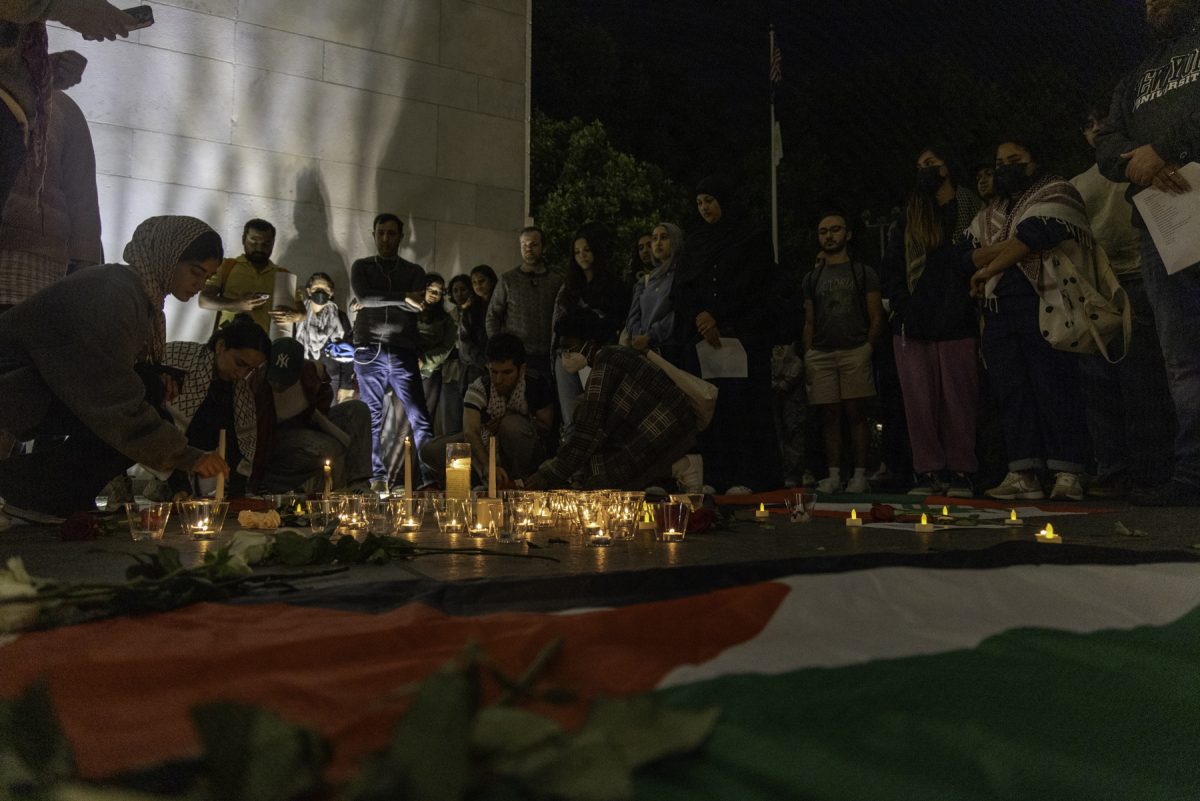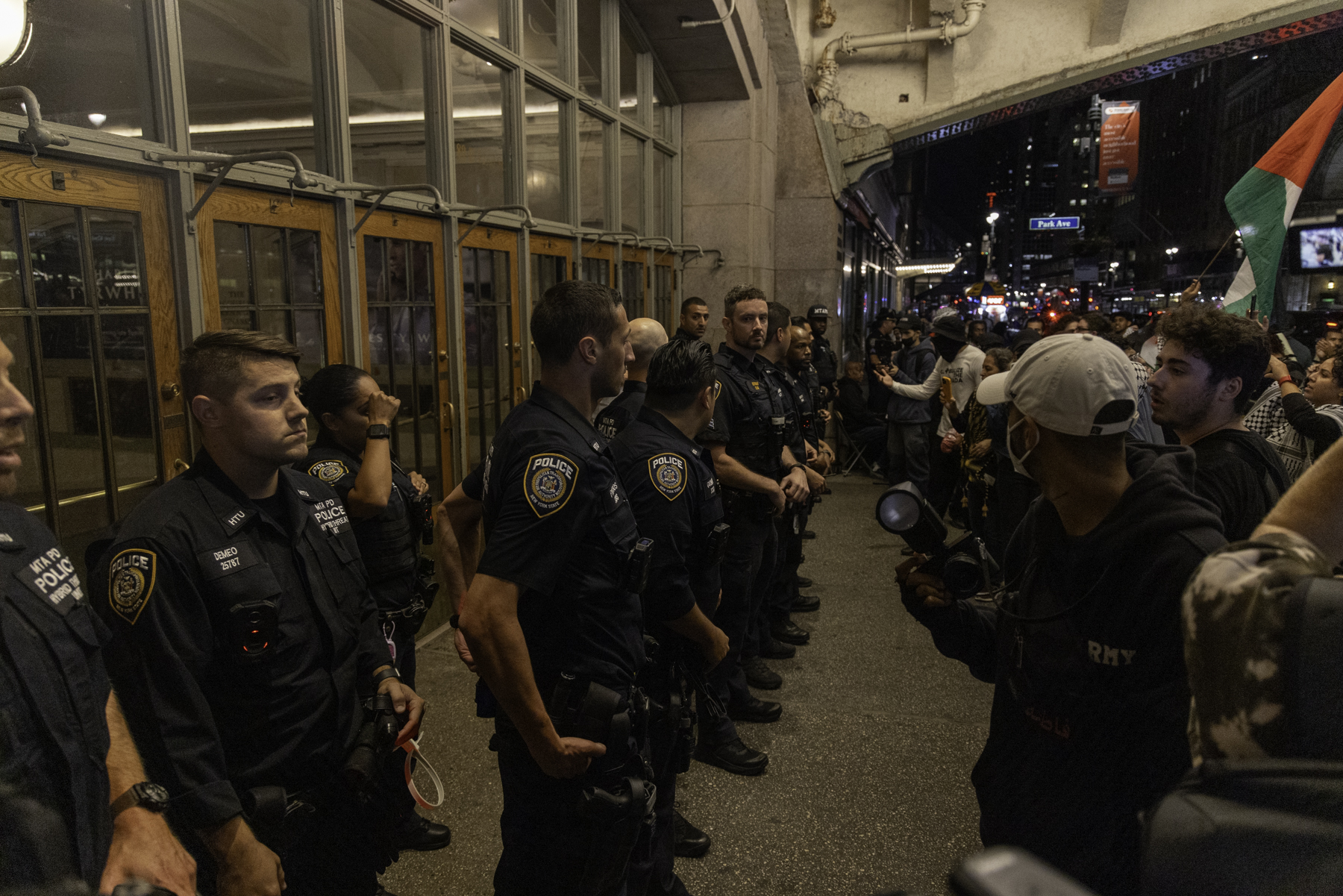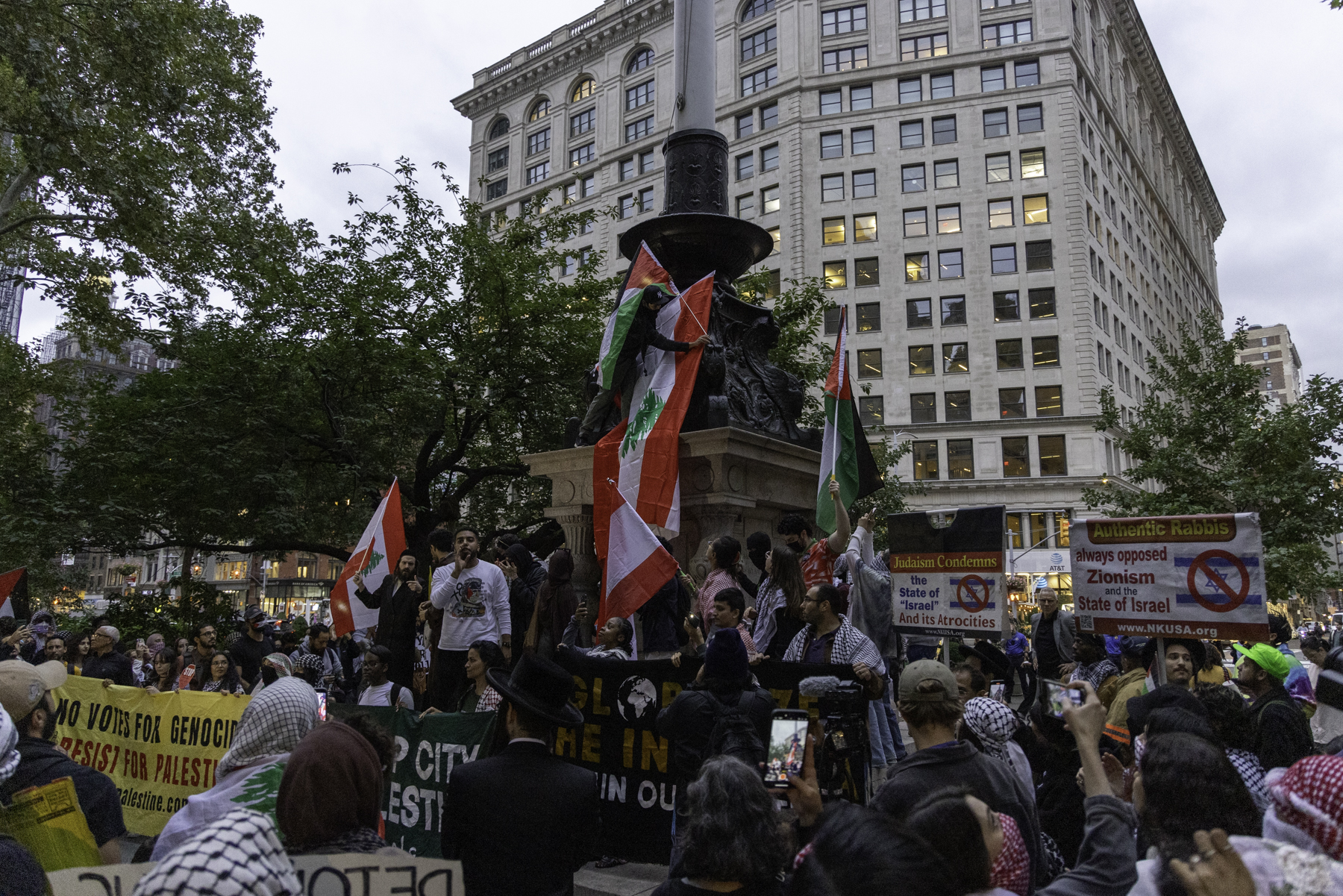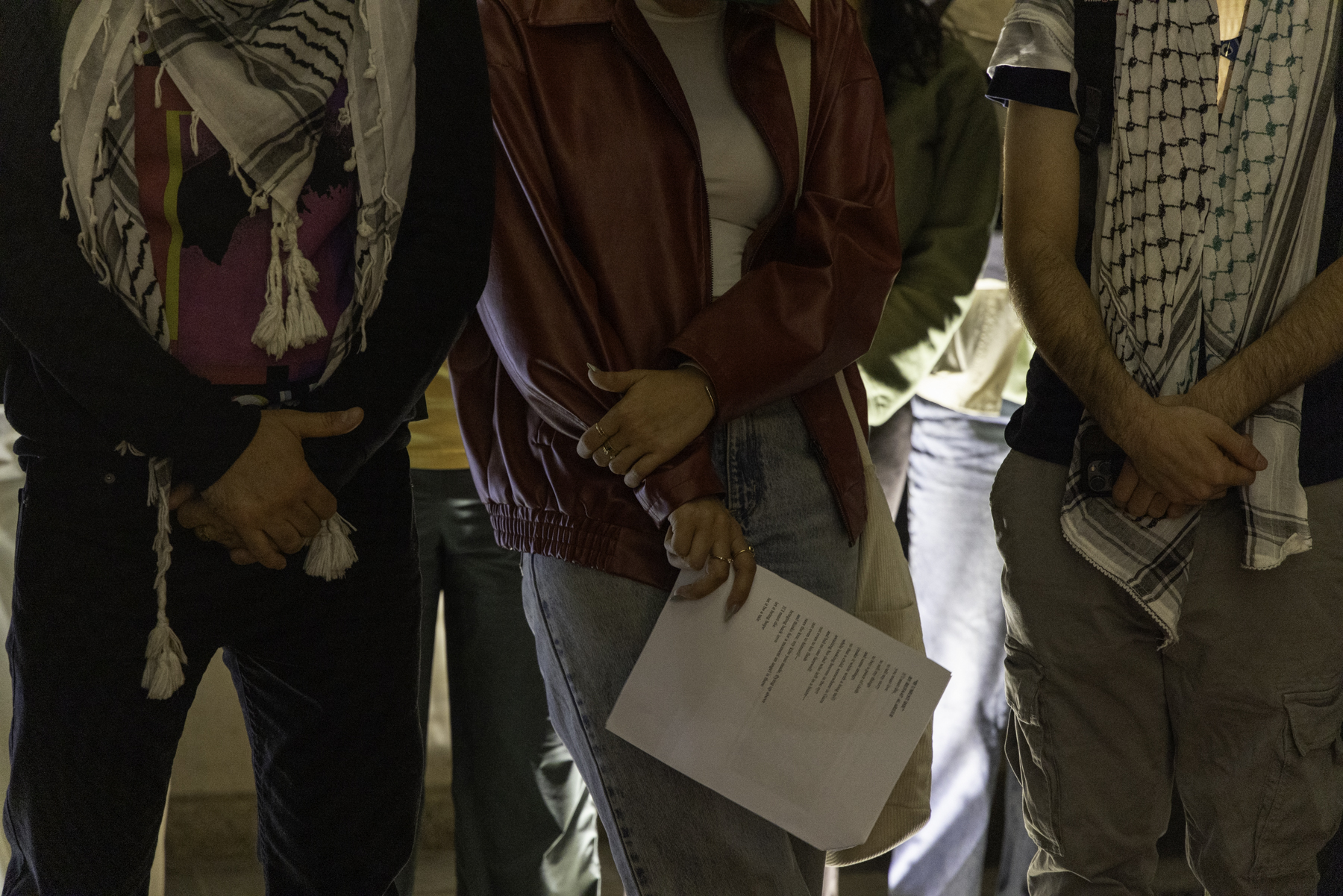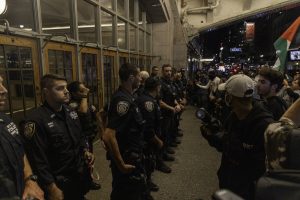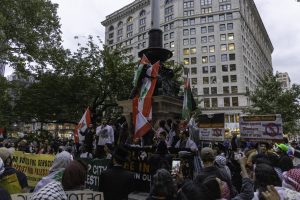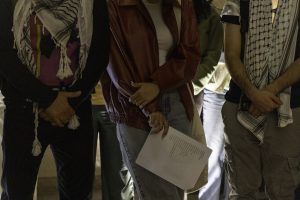More than 40 people, including NYU students and faculty members, gathered in Washington Square Park on Tuesday night to mourn the hundreds of lives lost in Israel’s escalating bombardment of southern Lebanon and its ongoing siege in the Gaza Strip.
The vigil, which took place under the Washington Square Arch, was organized by NYU’s chapter of Students for Justice in Palestine, the Arab Students Association, the People’s Solidarity Coalition and the Muslim Student Association. An SJP member who helped organize the vigil said the gathering served as a place for students to reflect and process the “acts of terror” taking place in the region in an interview with WSN.
“It brings people together and to a moment of peace and silence,” said the student, who requested to remain anonymous due to safety concerns. “Silence, a lot of the time, is when people take time to reflect upon what’s going on.”
On Monday, the Israeli military launched an airstrike in Lebanon, killing more than 550 people and wounding over 1,600. The attack came after long-standing tensions between Israel and the Lebanese militant group Hezbollah — one of the biggest opponents of Israel’s war in Gaza and a supporter of the Palestinian militant group Hamas.
At the vigil, students laid out Lebanese and Palestinian flags, lighting candles and placing flowers around them. Students gave speeches, recited prayers and read aloud multiple poems — including “The Perplexing Smiles of the Children of Palestine” by Marcellus Williams, who was executed in Missouri on Tuesday after being wrongly convicted of murdering a woman in 1998. A member of SJP gave a speech at the vigil, addressing the “unimaginable pain and loss” those connected to the conflict are experiencing.
“The way we’re watching the news about Lebanon can bring no other feeling other than horror and pain,” the student said. “We’re seeing the same types of videos and photos that we saw in Gaza come from Lebanon. As Arabs, we have an understanding of how the world views us, but that doesn’t change the pain that’s inflicted on us when we watch our homes getting destroyed.”
A group of the attendees had come from a citywide demonstration protesting the airstrikes in Lebanon, where hundreds gathered in front of Madison Square Garden before marching toward 42nd Street and Second Avenue. The protest dissipated at a barricade to the United Nations headquarters in Turtle Bay, where Israeli prime minister Benjamin Netanyahu is scheduled to speak later this week.
The march, which circulated Instagram accounts of on-campus groups including NYU SJP and the PSC, saw dozens of New York State police officers threatening to arrest demonstrators who did not remain on the sidewalk.
In a Tuesday Instagram post, NYU SJP, the PSC and other on-campus groups condemned New York City mayor Eric Adams for authorizing the New York City Police Department in “brutalizing and arresting dozens of protestors” at the demonstration. The organizations called on Adams to resign, the disbandment of the NYPD’s Strategic Response Group — which responds to protest activity — and for the police department’s office in Tel Aviv to close. The precinct could not confirm the arrests with WSN.
Addie Walker, an NYU Law student who attended the vigil, said “suffering anywhere is still suffering” and that while she isn’t directly affected by the regional conflict, she still feels connected to it.
“Our school has been quite antagonistic towards protesters and people standing in solidarity with Palestine and pretty much any other marginalized community or group,” Walker said. “It’s important that people don’t back down and that people continue to make space where we’re constantly being pushed down and made to feel small.”
Last spring, members of the NYU community held protests against the war in Gaza and the university’s ties to Israel, including two pro-Palestinian encampments in Gould Plaza and outside the Paulson Center — both of which led to the arrests of dozens of students, faculty and alumni. NYU leadership faced significant backlash for its response to the protests, including President Linda Mills who said the “only path forward” was to host listening sessions with community members.
Tandon senior Hirod Nazari, who attended the Tuesday gathering, said that vigils help establish a better understanding of why NYU students have held pro-Palestinian demonstrations on campus in an interview with WSN.
“A lot of people unfortunately have this perspective of the pro-Palestinian side that it’s violent, it’s disruption — but, at the end of the day, it’s important to keep in mind why there’s disruption,” Nazari said. “It’s because people are dying and events like these help put into context the solemness of events. You may see protests and you see violence and anger, but that anger is over grief.”
Danny Arensberg contributed reporting.
Contact Liyana Illyas at [email protected].























































































































































